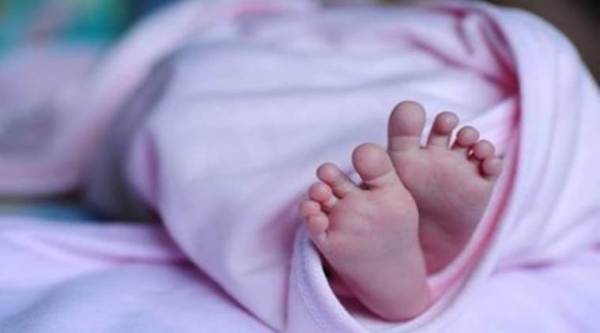 Assessing the gravity of the situation, the neurosurgeon at Bharati Hospital, Pune, had to surgically remove two of the frontal bones and the skull bone at the back of the head to reduce the swelling.
Assessing the gravity of the situation, the neurosurgeon at Bharati Hospital, Pune, had to surgically remove two of the frontal bones and the skull bone at the back of the head to reduce the swelling.
A fatal road accident, severe head injuries and massive trauma, such was the ordeal of little Suhani (name changed) and her family over the last six months.
The four-year-old survived miraculously after a serious road accident in December 2017, but the accident left Suhani with a deformed cranial structure. “There was practically no medical solution available in India to manage this deformity and the little girl had no option but to live with it for life. Unfortunately, we did not have any evolved medical treatment for such patients. We could either use a graft from the patient’s rib cage to reconstruct the cranial bone, which involved further trauma to the patient, or in some cases, a parent’s skull graft could be used for similar purposes,” doctors said.
Last December, around the same time when the patient suffered head injuries, one of the leading medical device companies, had announced the launch of Customised Cranial Implant (CCI) that could be used to reconstruct cranial cavities or deformities in such cases. A concept, which seemed far-fetched then actually turned out to be a boon for Suhani later.
Due to a severe head injury and swelling, Suhani was admitted in the paediatric ICU on ventilator support. She had already undergone two major cranial surgeries. Assessing the gravity of the situation, the neurosurgeon at Bharati Hospital, Pune, had to surgically remove two of the frontal bones and the skull bone at the back of the head to reduce the swelling. “Usually, when the cranial bone is removed, it is refrigerated and re-implanted when the swelling subsides. But owing to her age and the brittle nature of her cranial bone, it had to be discarded. Post the surgery, Suhani responded well to the treatment and recovered gradually,” said Dr Vishal Rokade, Suhani’s neurosurgeon.
“When she came for a follow-up, she was walking by herself, talking independently and required minimal assistance,” added Rokade.
Although the surgery was a success, the significant cavity on the sides and back of her skull left Suhani emotionally disturbed. Suhani’s mom said: “She used to be a chirpy child who loved playing outdoors and making friends. But the accident and a disfigured head had affected her confidence. She became hesitant to even interact with her friends. She often touched her head as if wondering when this cavity would fill and she would also look like her friends and other kids. Watching her battle these thoughts was extremely painful for us. The very thought of what kind of challenges she would have to face in life due to a disfigured head, made us feel helpless.”
Having taken care of Suhani from the day the four-year-old was rolled into the hospital’s emergency, Rokade, Dr Jitendra Oswal, professor of Paediatrics and Deputy Medical Director at the hospital, and Dr Bhakti Sarangi, paediatric ICU incharge, were determined to find a solution for her.
But it wasn’t an easy search. On one hand, her growing age posed a significant challenge and on the other, there were no proven modes to treat this in India.
“The options available were many but nothing was proven and tested… Surgeons worldwide have used patient’s own rib grafts, skull bone, titanium mesh, peek mesh, PMMA implant etc, but due to growing age, many times implant migrates or disfigures the head shape…,” said Dr Rokade.
With new technology, the implant can be customised as per the anatomical structure of the patient to fill the cranial bone cavity. Since it was the first-of-its-kind in India, Rokade initially had apprehensions, but after extensive research and consultations with surgeons from across the world, he decided to go ahead.
Rokade said: “We selected polyethylene material as it is biocompatible, porous and light weight. The pores in the CCI implant are interconnected and omni-directional, which help in fibrovascular growth of the surrounding tissue. Also, the customisation aspect gave us an advantage to trim and perfectly fit the implant as per the exact defect in the patient’s skull.”
The entire hospital and device company’s team were committed to developing a solution that could help Suhani lead a better life. The process of designing of customised implant started with the examination of CT scan images patient’s head by device company’s R&D team in the US. After thorough review and evaluation, an implant design was developed specific to the patient’s cranial defect. Based on the inputs provided by surgeons at Bharati Hospital, the design was approved, manufactured and finally imported from US in May 2018.